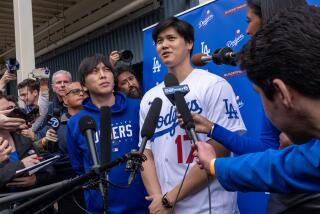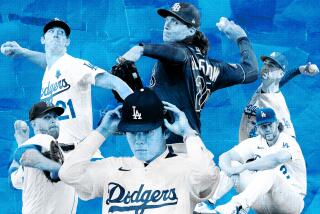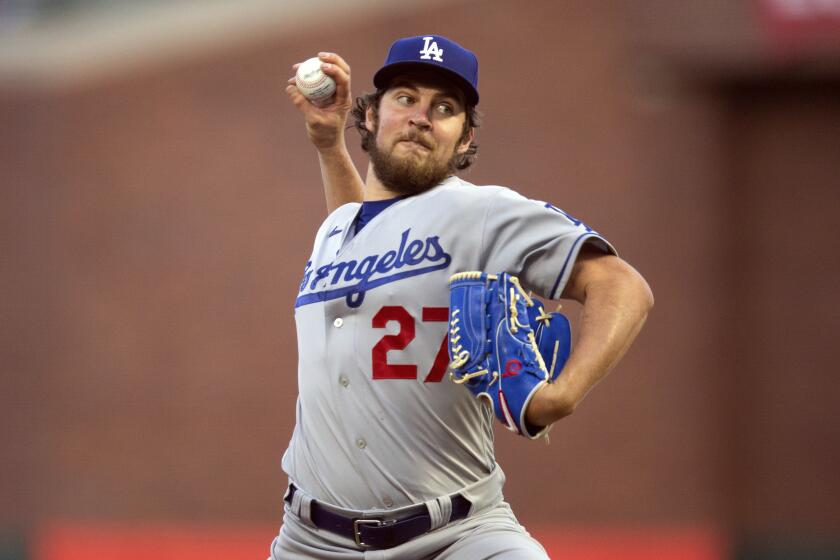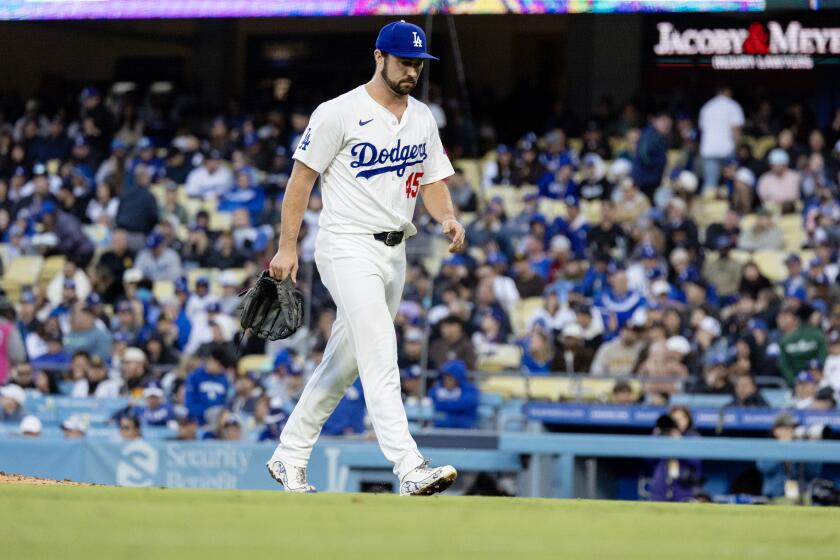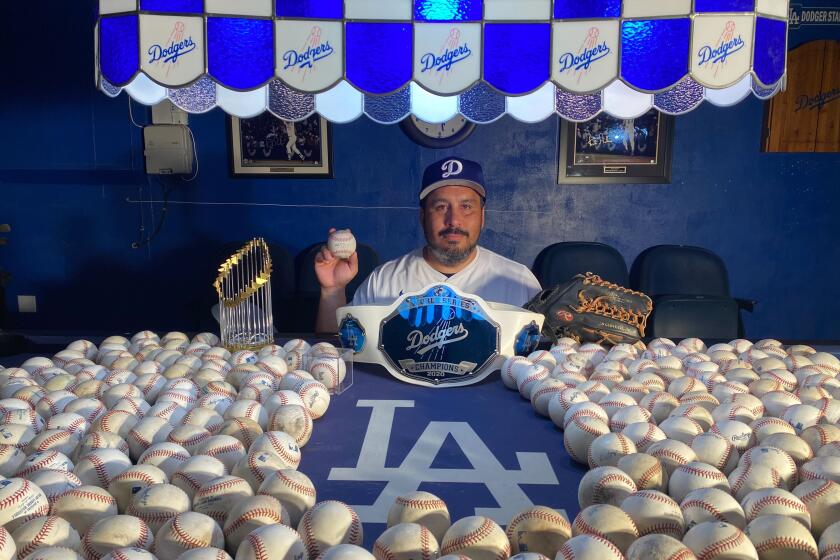Dodgers had hidden agenda with Carlos Marmol trade
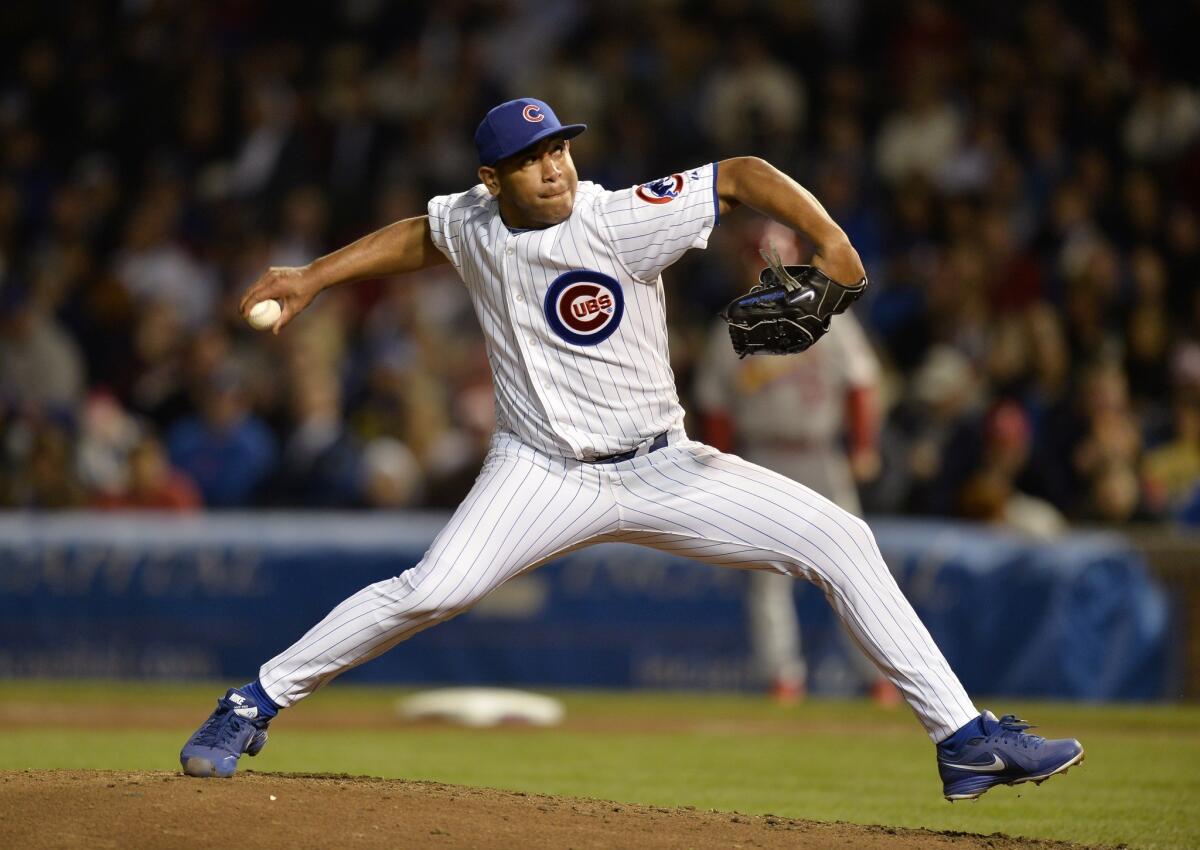
Smart money
The divorce of Dwight Howard and the Lakers might be the biggest story in town, and NBA legend Magic Johnson is an owner of the Dodgers. So the L.A. sports fan ought to appreciate that the best moves the Dodgers made last week included trading for cap space.
There is no salary cap for major league players, but the new collective bargaining agreement caps what teams can spend on amateurs. After Bob Engle, the Dodgers’ vice president of international scouting, determined the team needed more cap space to pursue players around the world, the Dodgers traded reliever Matt Guerrier to the Chicago Cubs for reliever Carlos Marmol.
Dodgers fans vented about why their team would want the erratic Marmol, but what the Dodgers really wanted was the additional $200,000 in international cap space the Cubs included in the trade. If Marmol helps the Dodgers, that’s an unexpected bonus. If Marmol never pitches a game in L.A., cutting Guerrier and then turning him into $200,000 worth of minor leaguers is a big win for the Dodgers. On Saturday, the Dodgers picked up pitcher Ricky Nolasco — and another $200,000 in cap space — for three minor leaguers.
“We’re looking for whatever edge we can find,” Dodgers President Stan Kasten said.
The Dodgers spent more than $100 million to sign Cuban outfielder Yasiel Puig and South Korean pitcher Hyun-Jin Ryu, but big money is not the only smart money. Kasten cited a recent study that showed 80% of major leaguers from the Dominican Republic signed for $100,000 or less — and that was before the cap went into effect last year.
The Dodgers’ first three international signings under this year’s cap were not from the scout-saturated Dominican Republic but from Venezuela and Germany, a reflection of the fleet of scouts the Dodgers hired to cover the world beyond Santo Domingo.
The Dodgers also spent on players slipping deep in the draft. For instance, they threw $175,000 at Los Alamitos High pitcher Greg Harris, their 17th-round pick and the son of the ambidextrous major league pitcher of the same name.
Quality helps build a minor league system, but quantity helps too — the more players you have, the better the chance of developing quality depth. When the Dodgers say they won’t be running a world-record payroll forever, these are the kinds of moves that confirm the long-range plan.
“I believe in the plan,” Kasten said. “But we’re not going to take any credit for at least a few more years.”
Family catch
When the Angels won the 2002 World Series, their catchers were the Molina brothers. Bengie was the starter, the clutch hitter. Jose was the backup, the defensive specialist.
As the Angels worked out before Game 1, a lanky 20-year-old watched from the home dugout. The kid’s name was Yadier, the youngest Molina, now a National League MVP candidate with a .346 batting average. The thought that Bengie was the best catcher in the family expired years ago.
“After watching him, I wasn’t even close. He’s the real deal,” said Bengie, who watches his kid brother daily as the assistant hitting coach for the St. Louis Cardinals. “It’s a thrill. It’s an honor. I’m so proud just to watch him go about it every single day.”
“His heart is so big. He’s been really, really good. I’m just so happy he’s playing like he is.”
More to Read
Are you a true-blue fan?
Get our Dodgers Dugout newsletter for insights, news and much more.
You may occasionally receive promotional content from the Los Angeles Times.
